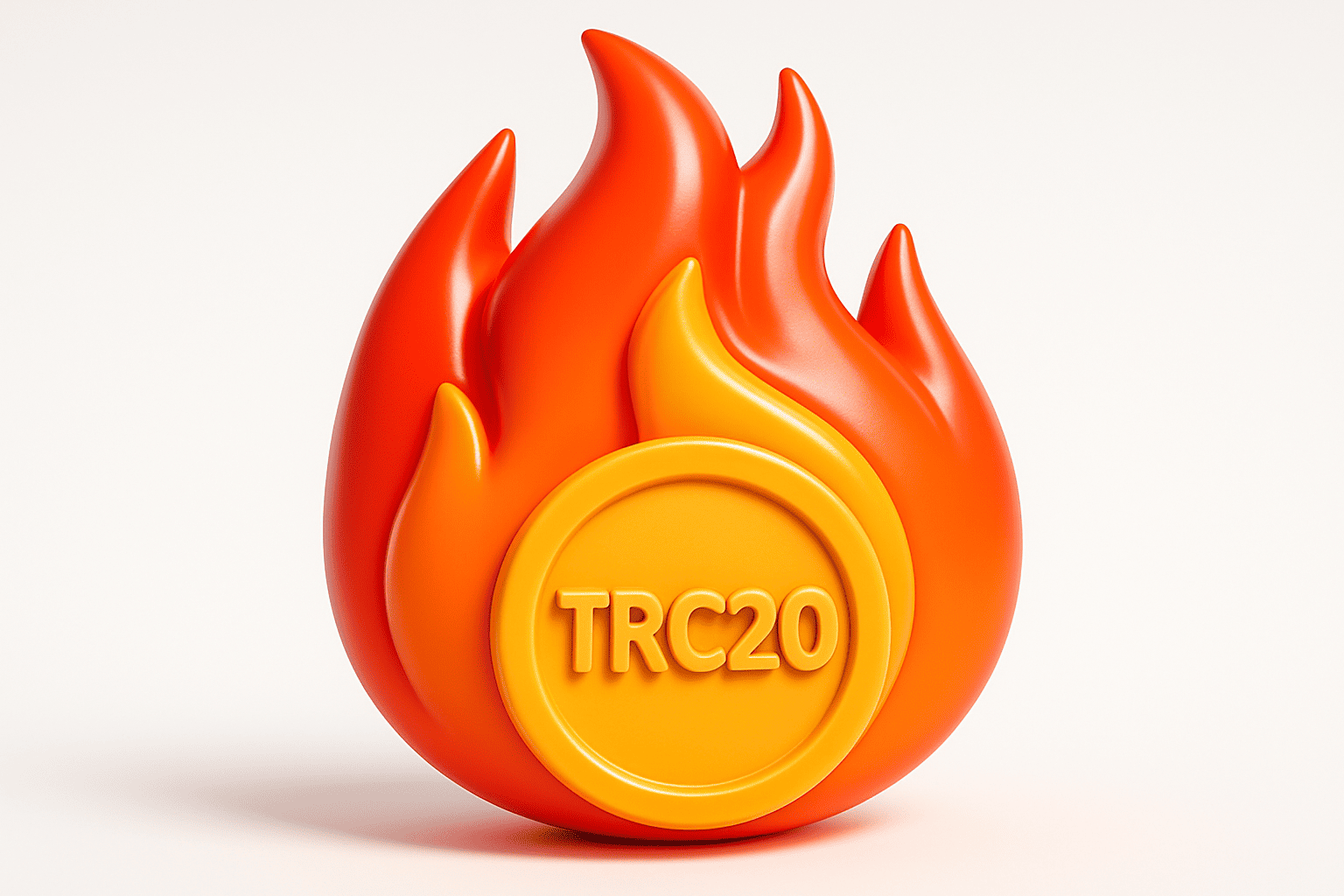Popular cryptos
OriginTrail
Download app Ironwallet and get tool for making transaction without network fee
About OriginTrail
OriginTrail is an open-source protocol built on blockchain technology designed to improve data sharing and transparency for supply chains. The core aim of OriginTrail is to help build trust in product supply chains by enabling seamless data connectivity between various stakeholders, including manufacturers, distributors, retailers, and consumers.
History of OriginTrail (TRAC)
The origins of OriginTrail date back to 2011, when founders Tomaz Levak and Ziga Drev came together to conceptualize solutions to improve food supply chain integrity. After conducting extensive research and development, OriginTrail was formally incorporated in 2013 under the company Trace Labs. The first version of the OriginTrail protocol was created in 2017.
Trace Labs conducted two successful pilot projects in 2018 that demonstrated the ability of OriginTrail’s decentralized network to improve data integrity for supply chains. These pilots attracted further investment and enabled Trace Labs to hire more protocol developers to further enhance OriginTrail.
In 2021, Trace Labs rebranded to OriginTrail with the launch of the OriginTrail Decentralized Network (ODN) v7 mainnet. This marked a major milestone for transitioning the project into a decentralized protocol governed by the community. The ODN is now supported by over 500 independent node operators.
How does OriginTrail work?
At its core, OriginTrail utilizes blockchain technology to facilitate trusted data sharing between supply chain stakeholders. Participants can upload important supply chain data like certifications, batch numbers, manufacturing info, etc onto the OriginTrail Decentralized Network in a unified data layer.
This data is validated via consensus mechanisms by nodes on the network. The blockchain ensures an immutable record of this supply chain data while encrypting sensitive details. Participants can then selectively disclose data to other network stakeholders, allowing for traceability and transparency without revealing confidential information.
Advanced cryptographic techniques are used to verify identities on the network. OriginTrail also supports integration with legacy corporate systems and data inputs like RFID and IoT sensors, allowing for easy onboarding of companies onto the protocol.
OriginTrail’s Use of Blockchain Technology
OriginTrail leverages blockchain in a few key ways:
- Decentralized nodes validate data on the network via consensus, ensuring trust.
- Data is immutably recorded on the blockchain, providing integrity.
- Sensitive data is encrypted while allowing traceability.
- Tokens incentivize nodes to provide services that maintain the network.
- Smart contracts automate interactions between participants.
This decentralized approach unlocks supply chain transparency not possible with centralized databases which have a single point of failure. The blockchain removes intermediaries while increasing security.
Benefits of Using OriginTrail for Supply Chains
Some of the major benefits of OriginTrail for supply chains include:
- Increased transparency between stakeholders improves integrity.
- Documented compliance with standards and regulations.
- Better inventory management from end-to-end visibility.
- Enhanced food safety from tracing issues to the source.
- Reduction in fraud and errors.
- Streamlined efficiency via paperless data exchange.
- Maintained confidentiality as needed with encrypted data.
OriginTrail Token
TRAC is the native cryptocurrency of the OriginTrail decentralized network. It is an ERC-20 token built on the Ethereum blockchain.
The maximum supply of TRAC is capped at 500 million tokens. These tokens serve several key functions on the OriginTrail platform:
- Incentivization – TRAC tokens provide incentives for nodes to perform services that support the network’s operations through a Proof of Stake model. Nodes must stake TRAC to participate.
- Governance – TRAC holders can vote on protocol upgrades and other governance matters related to the development of OriginTrail.
- Payment – TRAC will be used as a means of payment between entities that exchange data on the OriginTrail network.
- Access – TRAC tokens grant access to certain features of the OriginTrail ecosystem.
As adoption of the OriginTrail protocol grows, demand for TRAC tokens is expected to increase as more nodes join the network and more data gets exchanged by supply chain companies leveraging the technology.
TRAC was first made available through an initial coin offering in 2018 where it sold for $0.13 per token. It has traded as high as $1.84 and as low as $0.021 since then based on market conditions. TRAC can be purchased and traded on major exchanges including Binance, OKEx, and Uniswap.
The Use Cases and Applications of OriginTrail
OriginTrail is well-suited for improving data exchange in supply chains across industries, especially food and pharmaceuticals where integrity and compliance are paramount.
Major existing use cases include:
- Food producers verifying origins and processing of ingredients.
- Logistic companies seamlessly tracking asset quantities and locations.
- Authorities accessing tamper-proof chain of custody records.
- Automating certification sharing like organic or fair trade status.
- Retailers providing consumers with verified sourcing info.
As blockchain adoption grows, the decentralized, cross-organizational data layer OriginTrail offers will become increasingly valuable. Its unique positioning in the Web3 data exchange landscape points to a promising road ahead.
How to Invest in OriginTrail (TRAC)
OriginTrail (TRAC) is the native cryptocurrency token used on the OriginTrail decentralized network. For investors interested in gaining exposure to the project, TRAC tokens can be purchased on several major cryptocurrency exchanges.
TRAC is currently traded on exchanges like Binance, KuCoin, OKEx, Uniswap, and Bittrex. It has trading pairs against cryptocurrencies like Bitcoin, Ethereum, USDT, and USD Coin. As with any cryptocurrency investment, it’s recommended that investors purchase TRAC on a reputable exchange and store it securely in a cryptocurrency wallet off the exchange after purchase.
To invest in TRAC, you’ll first need to sign up for an account on one of the exchanges it is listed on. You can then deposit funds you’d like to trade – usually Bitcoin or Ethereum. Next, you can trade some of those funds for TRAC tokens. Make sure to factor in TRAC’s trading volume on the exchange you use to ensure liquidity.
It’s important to note that as a cryptocurrency, TRAC can be volatile and investors could lose money. Thorough research of OriginTrail’s technology, roadmap, team, and market performance is advised. Start with a small position size and only invest what you can afford to lose. Utilizing dollar cost averaging and taking profits at price targets can help mitigate risks when investing in TRAC. As with any investment, a long-term outlook centered around the project’s fundamentals is best for believing in its success.





















